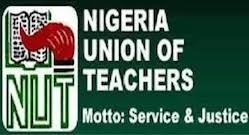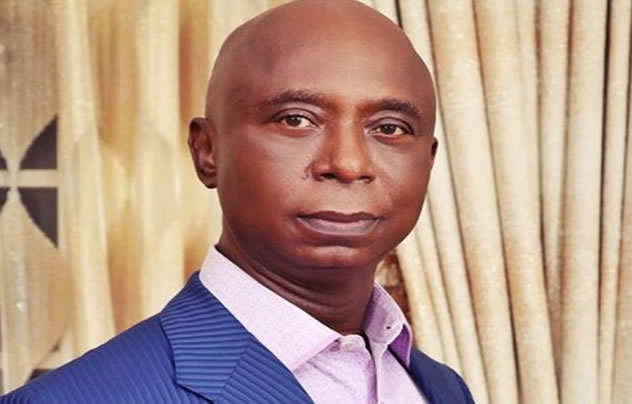NEWS
Abandoned projects: ICPC Returns over 500 Contractors to Sites

The Indepedent Corrupt Practices and Other Related Offences Commission (ICPC) has said it has returned over 500 contractors to sites to complete abandoned and shoddily completed projects.
The commission said this was achieved through its Constituency and Executive Project Tracking Initiative (CEPTI).
Demola Bakare, Spokesperson for ICPC, said this in a statement on Wednesday in Abuja.
He quoted the ICPC Chairman, Dr Musa Aliyu, as saying this at a Policy Dialogue on the Role of the Private Sector in the Implementation of Constituency Projects in Nigeria.
The dialogue was organised by OrderPaper Advocacy Initiative in Abuja.
The chairman, represented by the Secretary of the Commission, Mr Clifford Oparaodu, said CEPTI had saved the country hundreds of millions of naira in the process.
”CEPTI, through its various phases has tracked over 3,485 projects between 2019 and 2023.
”Some of the uncompleted projects not only deprived Nigerians of basic amenities and infrastructure, but also posed the risk of increased security risks.
”Some of the projects or buildings might be inhabited by unscrupulous members of the community,” he said.
Aliyu underlined the importance of the Private sector in monitoring the implementation of constituency projects in the country.
He said that completed constituency projects were major dividends of democracy, which fostered growth and development at the grassroots.
The ICPC chairman said that lack of accountability in execution of projects was “a red flag of systemic corruption” that short changes the electorate and deprives them of beneficial social systems that should be readily available.
Aliyu further said that the private sector had a major role to play in identifying and preventing corruption in execution of projects and highlighted the successes recorded via the project tracking initiative of the Commission.
He lauded the increased impact of Civil Society Organisations (CSOs), NGOs and other stakeholders in the private sector.
“Private sector participation in constituency project implementation is integral to the execution of such projects hence it should be accorded the necessary encouragement.
”This is based on the conviction that the process stands to benefit more from value chain in areas like funding and investment” the chairman added.
Aliyu stated that the recent pronouncement of the Supreme Court as regards Local Government autonomy necessitated increased efforts to optimise the resources allocated to the grassroots.
While welcoming participants to the policy dialogue, the Executive Director of Orderpaper, Mr Oke Epia, stated that “Constituency projects are no longer matters under the radar”
He said that they were meant to benefit communities and improve the living standard of the society.
Epia further said that Orderpaper from its inception was in the business of correcting erroneous information and misconceptions about the role of lawmakers in the implementation of constituency projects.
He maintained that corruption and lack of accountability in the execution of such projects should not be apportioned to lawmakers alone, but rather the spotlight should also focus on contractors.
According to Epia, corruption cannot happen without the connivance and collaboration of contractors and the financial system (institutions) too”.
He urged stakeholders to see the dialogue as an opportunity to facilitate robust conversation and focus on how to collaborate with the private sector to deescalate issues hampering transparency and accountability.
Also, the Majority leader of the Senate, Micheal Opeyemi Bamidele, said that the success of the implementation of constituency projects was dependant on the conduct of all key players in the sector.
“No government, no matter how well organised, can guarantee a nation’s rebirth,”Bamidele said.
He called on members of the private sector to dedicate time and resources to the growth and development of their communities as part of their Corporate Social Responsibility (CSR).
The Chairman of the Economic and Financial Crimes Commission (EFCC), Mr Ola Olukoyede, stated that key players of the private sector should work in tandem with Law Enforcement Agencies (LEA)
According to him, working with LEA like ICPC and EFCC will help curb the corruption in constituency projects.
Olukoyede, who was represented by Dr Eze Johnson, added that the input of members of the community was equally important in the implementation of projects.
He said they were the end users and their input will automatically reduce waste and prevent corruption.
The EFCC chairman praised the initiative of the policy dialogue, stating that constant discourse creates multiple solutions to prevailing issues in the implementation of constituency projects. (NAN)
NEWS
Insecurity: Benue LG Boss Bans Forest Logging Activities

The Chairman, Agatu Local Government Area (LGA) of Benue, Mr Melvin Ejeh, has imposed an immediate and comprehensive ban on all forest logging activities in Agatu West.Ejeh, in a statement on Sunday, said that the declaration was another resolute effort to address the escalating security concerns that have beset the LGA.
The chairman said that the directive takes immediate effect and it was imperative that all stakeholders and residents adhere to the policy with utmost seriousness. “The decision to impose this ban is informed by the alarming rate of insecurity that has plagued our area, largely exacerbated by the unregulated activities of loggers.“The incessant logging has not only led to severe environmental degradation but has also created avenues for criminal elements to operate with impunity.“The resultant effect is a heightened sense of insecurity, which has become a source of grave concern for us all.“In light of this, it has become imperative for us to take decisive action to safeguard the well-being and safety of our residents.“The ban on logging activities is a proactive measure aimed at mitigating the security risks associated with unregulated logging,” he said.Ejeh stated that the ban would also contribute to the preservation of the environment and the protection of natural resources for future generations.The chairman emphasised that the ban was non-negotiable, and any individual or group found engaging in logging activities without proper authorisation would face the full weight of the law.According to him, all logging activities henceforth requires clearance from the local government chairman himself.He urged all residents to comply with this directive and report any logging activities to the council authorities.“Your cooperation and vigilance are crucial in our collective efforts to create a safer and more secure environment for all.“I assure you that Agatu Local Government Council remains committed to ensuring the safety and well-being of all residents.“We will continue to work tirelessly to address the security challenges facing our area and implement measures that promote peace and stability,” he added. (NAN)NEWS
Make Teacher a Model – NUT Urges Tinubu

The Nigeria Union of Teachers (NUT), has urged President Bola Tinubu to priotise teacher’s values and welfare to make the profession more attractive for younger generation.The National President of NUT, Comrade Audu Amba, made the appeal in an interview in Abuja.He urged the government to make teacher a model and recognise the teaching profession as a pillar of societal advancement.
Amba frowned at the current situation where teaching is made a “Hobson’s choice” among admission and job seekers – an option not because it’s your preferred choice, but because it’s the only option available after others have been filled. He said deliberate policies should be made to place teacher’s seat in frontal rows of other professions and teaching profession a preferred choice for youths.Amba said many students had little or no passion for teaching profession and this was most demonstrated when a candidate scores low marks in the Unified Tertiary Matriculation Examination (UTME).According to him, when a candidate scores below the cut-off marks of first and second choice courses, he or she is often compelled to study education in other not to loose admission for the year“Today in our secondary schools everybody is scrambling to get 300 and above in the UTME so that he or she can read medicine.“The university system made it clear that before you read .Medicine, you must score 300 marks and above. Why is such rules not applicable to Education?“Those students that want to read Medicine to become Doctor, who taught and will still teach them, is it not the teacher?,” he retorted.According to him, if the teacher is not sound, how could he or she impact the needed knowledge and training the child needs to study medicine?“It should be that the best candidate that got 300 scores that should study education and teach.“That is what is happening in some of the countries that have decided to change their direction, and that’s why they are getting it right.“A teacher should be very intelligent, knowledgeable and should be the best, to impact knowledge,” he saidAmba urged the government to take cue from other countries like Finland where teaching profession is highly valued, respected and made to attracts many applicantsAccording to him, Finland priotises education and has systems that ensure teachers are respected professionals with a very high emolument and a strong sense of autonomy, stability and security in their work.“In fact, if you go to Finland today, you’ll be proud to be called a teacher because the issue is that, teaching is not just lucrative, but even more challenging.“But today in Nigeria, parents don’t even encourage their children to go into teaching profession, even the students themselves.“Go to classrooms, just ask little children in primary school, who wants to be a teacher? Hardly will you see anybody raising his or her hand.“But ask, Who wants to be a doctor, lawyer, engineer? They will raise their hands.“Why is it so? Because they feel those are the professions that are valued, respected and well remunerated,” he said.Amba, therefore urged the government to put policies in place to change the trend and psyche by making the teacher a role model and encouraging its best to become a teacher(NANNEWS
ECOWAS Court Pledges to Deepen Academic, Youth Engagement

The ECOWAS Court has pledged to deepen its engagement with the subregion’s youths and academic institutions to ensure a robust legal culture of justice, human rights and rule of law.The President of the Court, Justice Ricardo Gonçalves, said this at the end of the maiden edition of the Moot Court competition of the Community Court on Saturday in Abuja.
Report says that the event, which began on Wednesday, had as its theme: “Promoting Regional Integration and Human Rights through Judicial Processes in West Africa. ”The competition brought together West African law students to simulate proceedings before the court, offering them firsthand exposure to an international tribunal’s working and the opportunity to refine their advocacy skills.Gonçalves said that the community court had resolved to make the competition an annual flagship programme.He also said that future editions of the competition would be expanded to include universities from all ECOWAS member states to truly reflect the bloc’s diversity and unity.The court’s president explained that through such engagement, the court would demystify its work and plant the seeds of a robust regional legal culture that values justice, human rights, cooperation and rule of law.“This event has made one thing abundantly clear; that the time has come for the ECOWAS Court of Justice to deepen its engagement with academic institutions and the youth of our region.“In light of the overwhelming success of this pilot edition, I am pleased to announce that the court has resolved to make the Moot Court Competition an annual flagship programme.“Future editions will expand to include universities across all ECOWAS Member States, truly reflecting the diversity and unity of our region,” he said.Earlier in a vote of thanks, the court’s Vice President, Justice Sengu Koroma, said the event aimed to create a platform for legal education, engagement and excellence among the region’s future legal minds.He also said that mooting was a portal through which students could fully immerse themselves in the environment of ethical considerations and protocols of a real courtroom.Koroma lauded the participating universities and their students, adding that their intellect, composure, and advocacy made the institutions proud and gave the court great hope in the future of regional justice.“Today, as we conclude the finals of this historic competition, we do so with immense pride and gratitude, having witnessed the vision come to life in a truly remarkable fashion.“To the students—you are the stars of this event.” Your hard work, enthusiastic participation, dedication and legal acumen have made this moot competition a success.“We wish each of you success in your future endeavour and hope that this competition has fostered not only legal proficiency but also a lifelong commitment to justice,” he added. Report says that the highpoint of the event was the announcement of the winners of the competition and award of certificates for various categories to them.Two Nigerian universities, Ahmadu Bello University (ABU) Zaria and University of Jos, won the overall best prize and runner up prize, carting home N5 million and N3million respectively.Two of the students, Nicholas Ochojila and Diretkinan Dashi, both from the University of Jos, expressed their gratitude to the ECOWAS Court for the opportunity to participate in the competition.They said that the event was a good outing for the university, which came second, narrowly losing to ABU by one point, and producing the overall best oralist award winner through Ochojila.(NAN)












